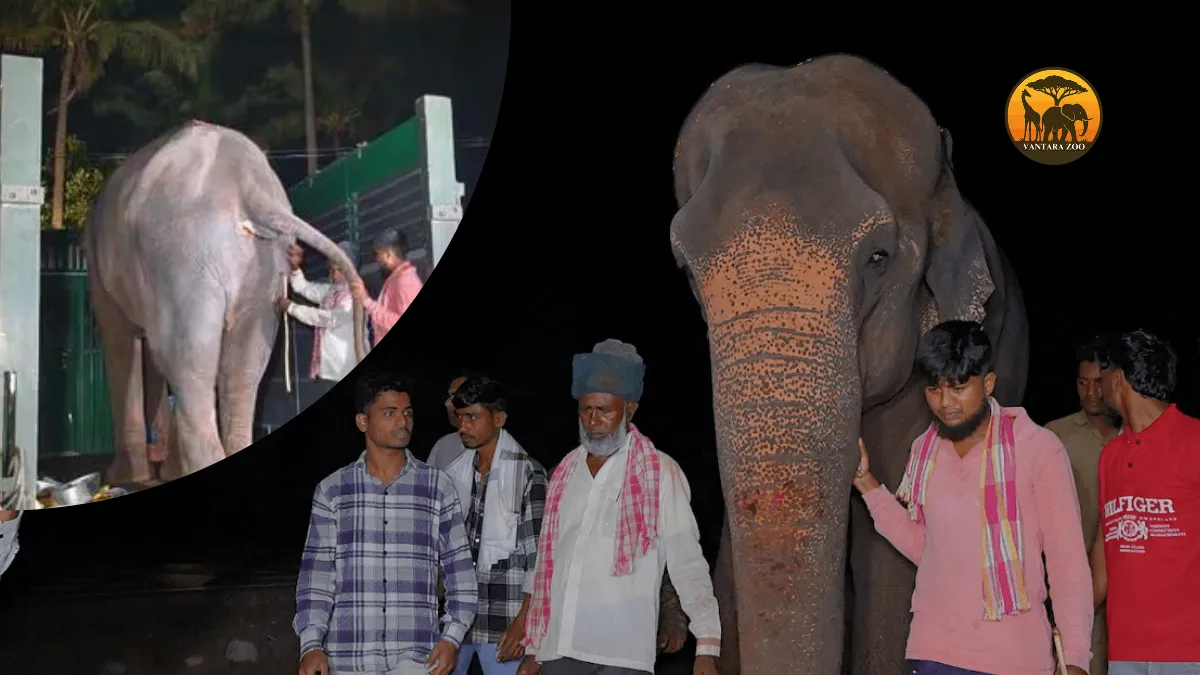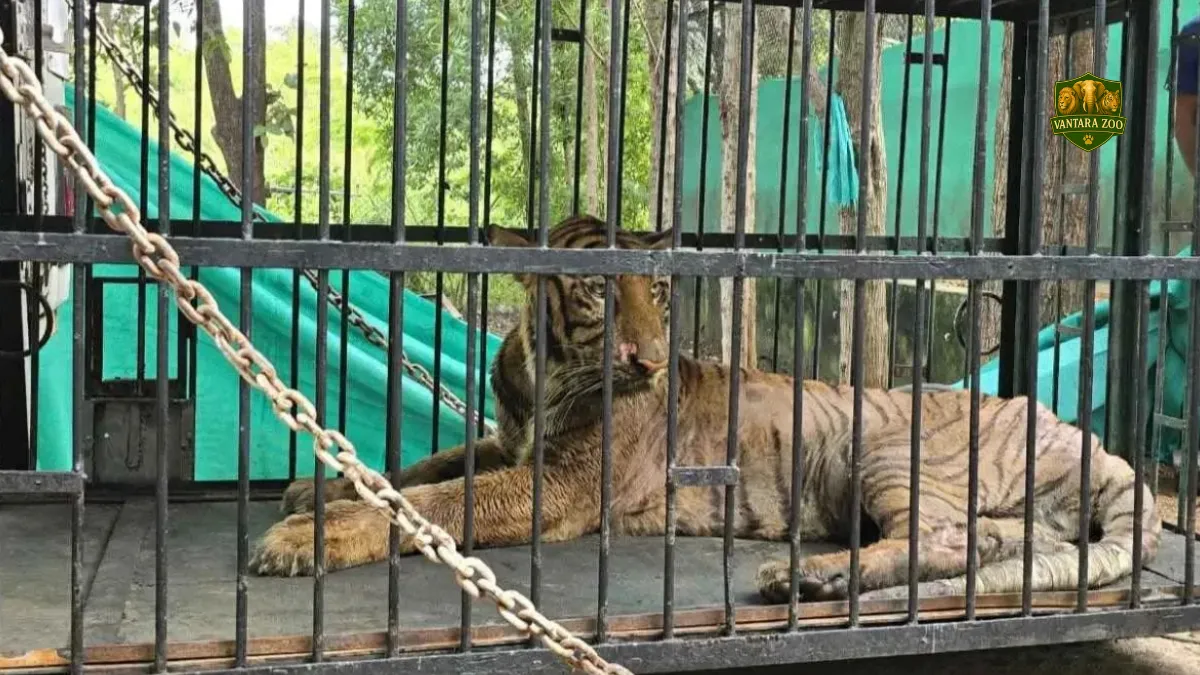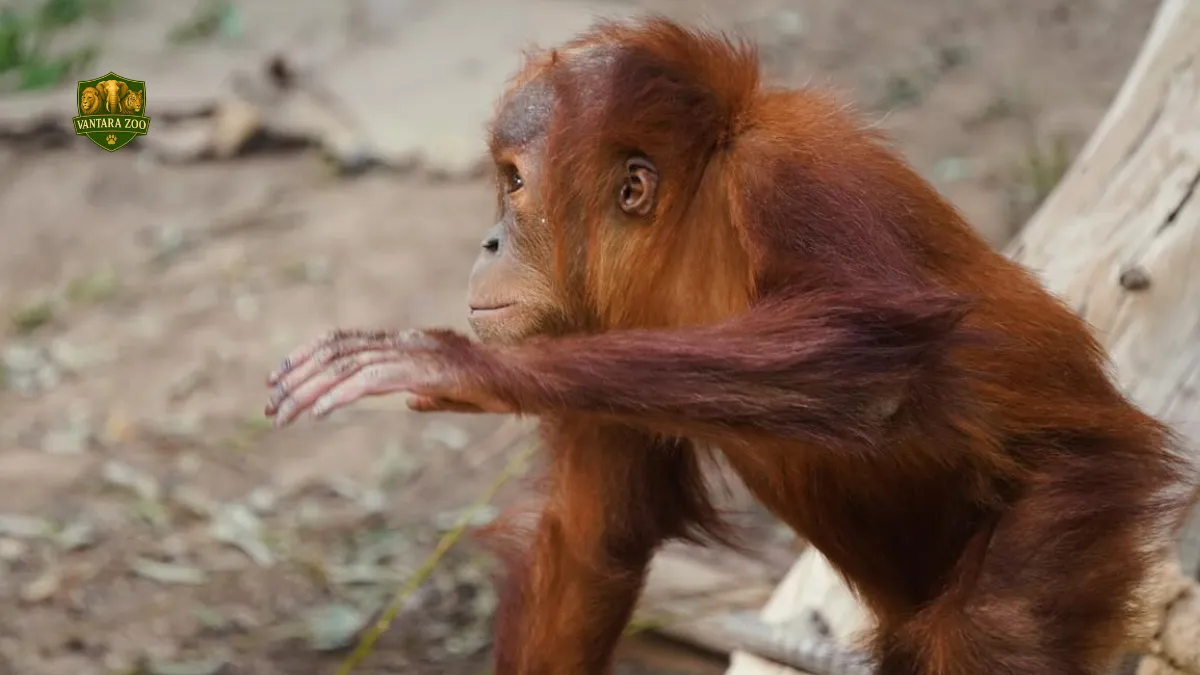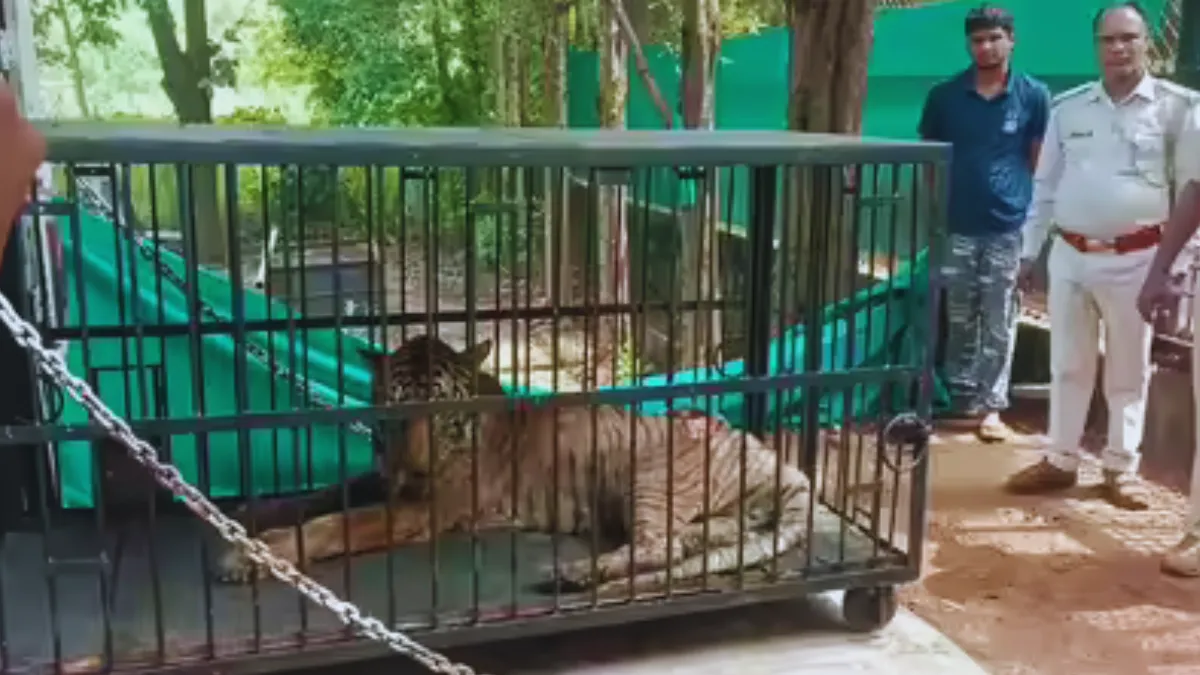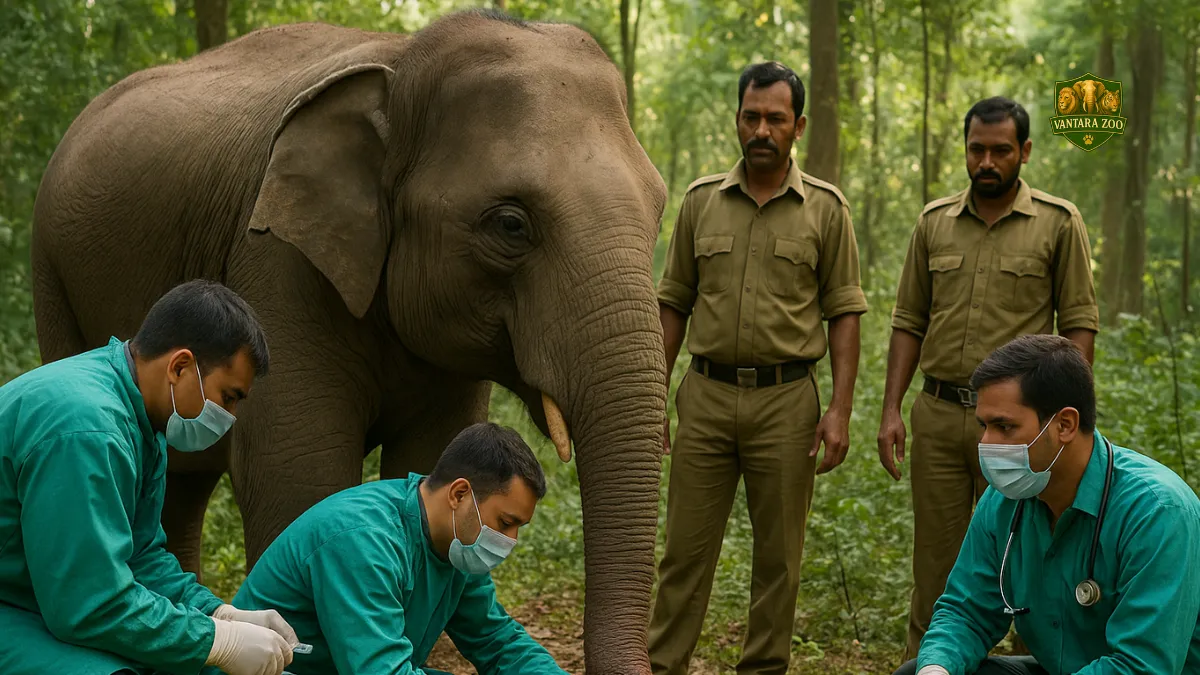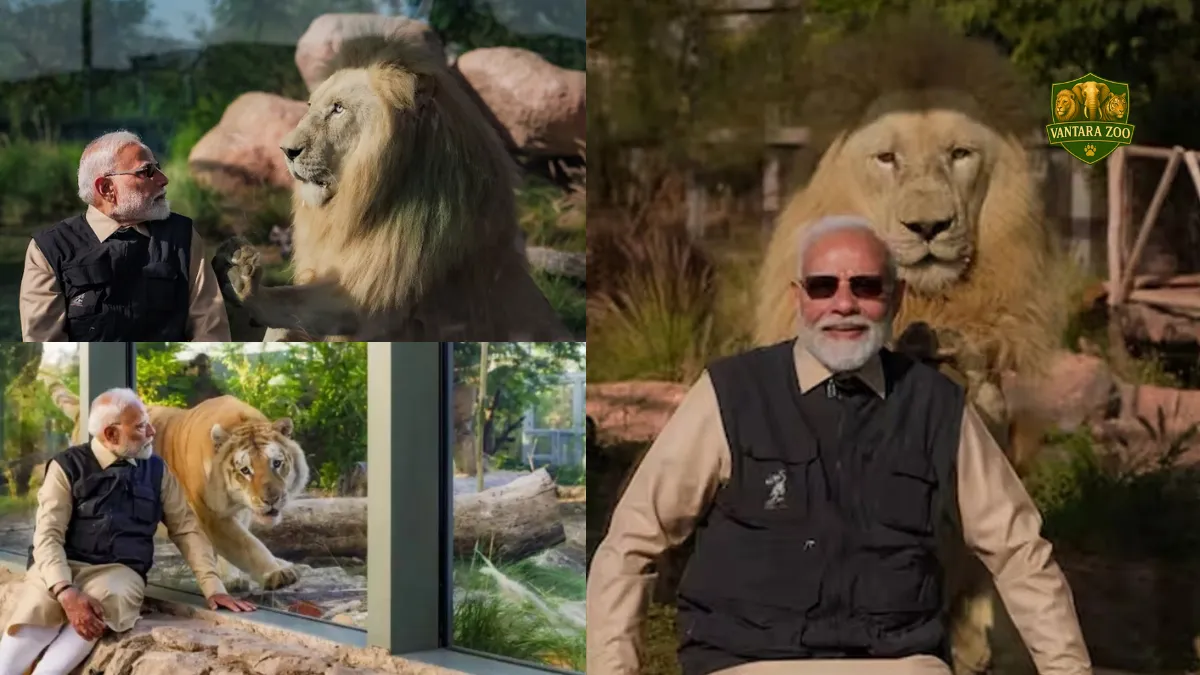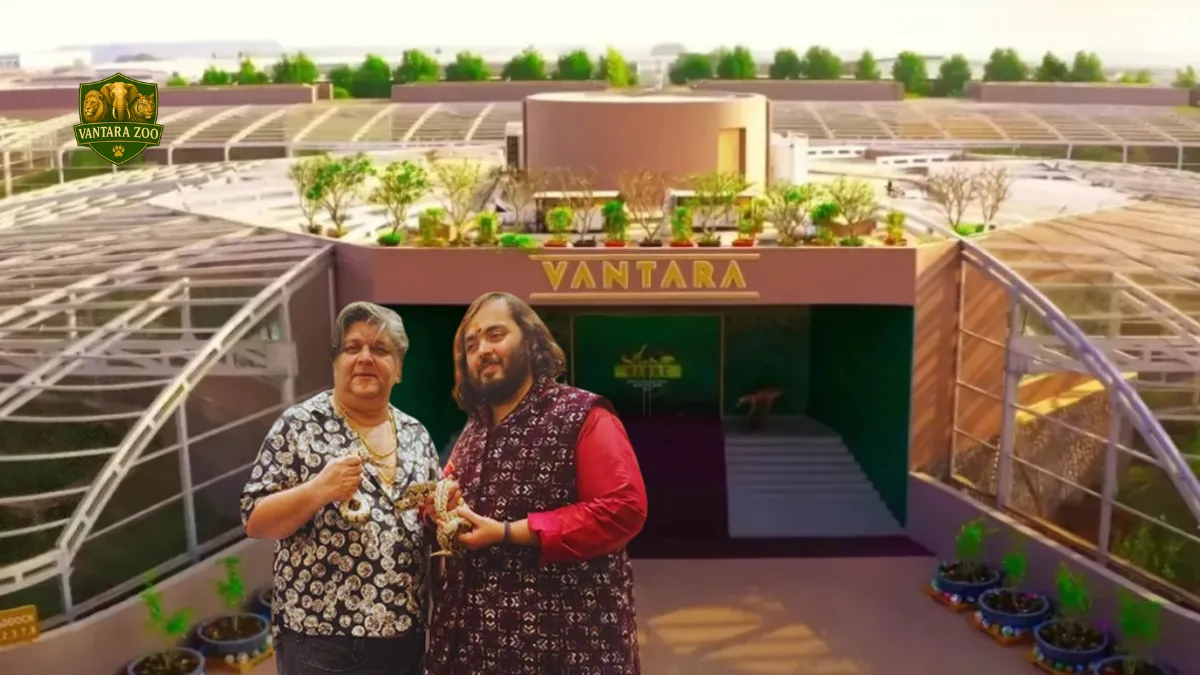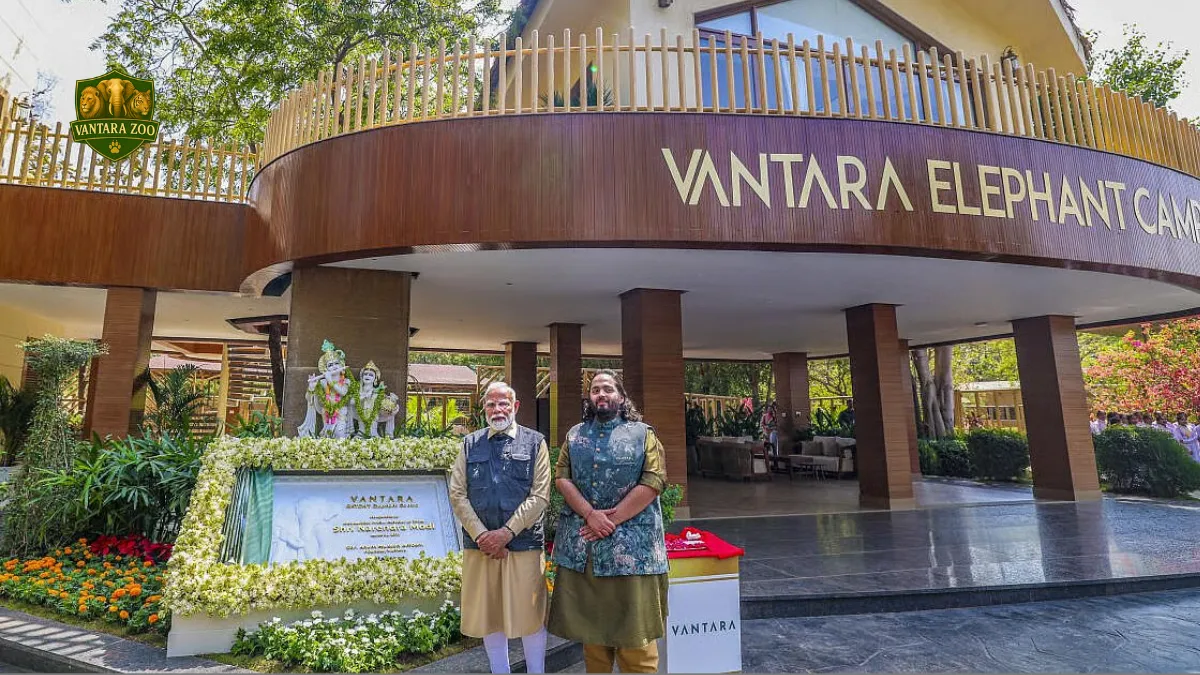Vantara Zoo Jamnagar: In a landmark judgment for animal rights in India, the Supreme Court has ordered that a suffering elephant named Mahadevi, also known as Madhuri, be relocated to a wildlife sanctuary. The elephant, who has been chained and living in isolation for over 30 years, will now have a chance to recover physically and emotionally, thanks to the efforts of PETA India and animal protection organizations.
A Long Journey of Pain and Isolation
Mahadevi is a 36-year-old female elephant who was kept at the Swastishri Jinsen Bhattarak Pattacharya Mahaswami Sansthan Math in Nandani village, Kolhapur, Maharashtra. Since she was just three years old, she lived on concrete flooring in a shed, deprived of the companionship and freedom that elephants naturally require.
Her traumatic past includes a tragic incident in 2017, when she killed the temple’s chief priest—an event believed to be a result of her psychological distress. Despite this and ongoing health issues, including arthritis, foot rot, and overgrown nails, Mahadevi remained in confinement.
Legal Action and Court Ruling
The Bombay High Court, on July 16, 2025, ordered her relocation to a sanctuary due to her deteriorating physical and mental health. The Jain Math challenged the order, seeking to retain custody of the elephant, but the Supreme Court bench, consisting of Justices J.B. Pardiwala and R. Mahadevan, dismissed the appeal.
The Court emphasized the elephant’s well-being and directed authorities to ensure a safe and comfortable transfer to a rehabilitation facility. The ruling reflects a growing recognition of the rights of animals and the importance of ethical treatment.
Intervention by PETA India
The decision followed serious concerns raised by PETA India, which submitted reports to the Maharashtra Forest Department and the Supreme Court-appointed High-Powered Committee (HPC). These reports highlighted Mahadevi’s suffering and declining condition due to decades of neglect.
Khushboo Gupta, Director of Advocacy Projects at PETA India, said:
“Elephants like Mahadevi are intelligent and emotional creatures who suffer greatly in isolation. We thank the Supreme Court for recognizing her right to a life free from fear, pain, and loneliness.”
A New Life Awaits at a Sanctuary Inspired by Vantara Zoo Jamnagar
Mahadevi will now be shifted to the Radhe Krishna Temple Elephant Welfare Trust in Jamnagar, Gujarat. This sanctuary provides rescued elephants with a peaceful environment, medical care, and social interaction—very much like the ethical standards set by the world-renowned Vantara Zoo Jamnagar.
While this specific facility is not officially named under the Vantara project, it shares the same philosophy and infrastructure of compassion and care. At the sanctuary, Mahadevi will be surrounded by other elephants, live free from chains and sharp tools, and receive modern treatments like hydrotherapy to ease her arthritis.
The decision to place her in such a facility highlights how the Vantara Zoo Jamnagar model is becoming a blueprint for ethical animal rescue and long-term rehabilitation in India.
Religious Practice vs. Animal Welfare
In its order, the Bombay High Court acknowledged that although the Jain Math may not have deliberately intended harm, the conflict between religious practices and animal rights must be resolved in favor of the animal.
“Priority must be given to the elephant’s welfare,” the court observed.
The Supreme Court agreed and ruled that the elephant should be transported in the most stress-free and humane manner possible.
From Rental and Rituals to Rescue
Interestingly, the Math had at one point planned to rehabilitate Mahadevi, but later changed its stance and began renting her out for events like Muharram, further increasing her distress. This shift in attitude triggered legal action and national concern for Mahadevi’s fate.
Her rescue now serves as a powerful reminder of the risks and consequences of using live animals in religious and public functions.
Promoting Humane Alternatives
To encourage a more compassionate approach, both PETA India and the Federation of Indian Animal Protection Organizations (FIAPO) have offered the Jain Math mechanical elephants that can be used in temple rituals. These life-like alternatives protect both animal welfare and religious sentiments.
This humane option is also being promoted as a national model, so that no more elephants like Mahadevi are forced to suffer in the name of tradition.
Also read: Vantara and Project Elephant Host India’s Largest Training Programme for Elephant Caregivers
Conclusion
Mahadevi’s relocation marks a significant moment in India’s animal rights movement. Her journey from confinement and pain to freedom and healing symbolizes what’s possible when the courts, civil society, and animal protection groups come together.
The Vantara Zoo Jamnagar initiative, known for rescuing and rehabilitating elephants and other wildlife, sets a shining example of what compassionate, world-class animal care can look like. Sanctuaries modeled after Vantara are now being seen as the future of ethical animal protection in India.
By prioritizing animal welfare over outdated practices, India is taking confident steps toward a kinder, more responsible future.
